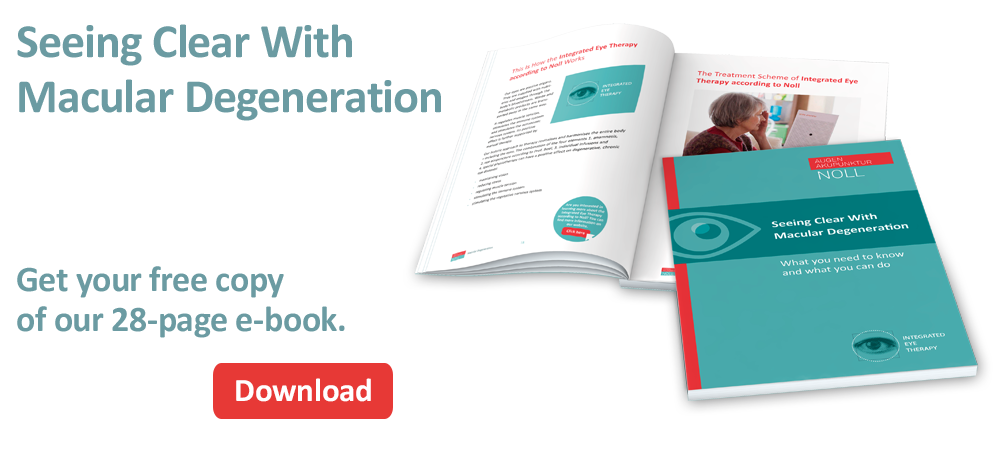The positive influence of a balanced diet rich in vitamins on our body is generally known. The question arises to what extent this can also prevent macular degeneration, AMD (age-related Macular Degeneration) or stop an already existing one. In the following overview, you will learn how you can favourably influence the visual performance of your eyes through a healthy lifestyle.
Nutrition for Macular Degeneration (AMD)
As our most important sensory organ, the eye has a very complex structure. For an intact metabolism, a sufficient supply of certain nutrients is extremely important. They contain so-called antioxidants as an important building block.
These neutralise the oxygen radicals produced during body metabolism. One substance that is indispensable for our eyesight is lutein, which is found in many fruits and vegetables. Deficiency symptoms due to an unhealthy diet can gradually lead to impaired vision and also promote the development of Macular Degeneration (AMD).
The most important energy suppliers in diseases such as Macular Degeneration (AMD), Glaucoma and Retinal Degeneration
These are the most important energy suppliers for your eyes: (The Lutein content per 100 grams is given)
- Kale (21.9 mg)
- Spinach (10 mg)
- Broccoli (1.9 mg)
- Leaf lettuce (1.8 mg)
- Peas (1.7 mg)
- Brussels sprouts (1.3 mg)
As you can see, dark green leafy vegetables are the undisputed leaders in supplying our eyes with Lutein and Zeaxanthin.
It is indeed possible to protect our eyes from disease with a balanced diet. However, this diet will not have any noticeable effect on existing short-sightedness or long-sightedness. The situation is different with Macular Degeneration (AMD).
The macular pigment of the eyes contains exactly the same substances that we get from eating green vegetables. This means that a healthy diet cannot cure Macular Degeneration (AMD), but can positively influence its course and, in the best case, stop the progression of the disease.
The importance of omega-3 fatty acids in the diet for Macular Degeneration (AMD)
Omega-3 fatty acids play a key role. With their protective effect on our retina, they contribute to the maintenance of our eyesight. Studies have shown that eating fish for decades significantly reduces the risk of developing Macular Degeneration (AMD).
What vitamins & co do for Macular Degeneration (AMD)
You certainly know the popular saying about the rabbit that eats carrots and therefore doesn’t need glasses. Is there really anything to it?
The answer to that: “Yes”.
This saying actually has a real background. Carrots contain beta-carotene as a precursor of vitamin A, a substance that is important for our eyes, but in smaller quantities compared to the dark vegetables.
Thus, a person suffering from Macular Degeneration would have to include about one kilogram of carrots in their diet every day to achieve a positive effect. Much more helpful is a combination of vitamins and trace elements.
Among the most important ones in the presence of Macular Degeneration (AMD) are:
- Vitamin A
- Vitamin C
- Vitamin E
- Lutein
- Zeaxanthin
- Zinc oxide
- Copper oxide
- Omega3 fatty acids
Conclusion on nutrition in wet and dry Macular Degeneration (AMD)
A balanced diet contains all the important substances your body needs to stay healthy. The risk of developing eye diseases is considerably reduced. Even in the case of existing Macular Degeneration (AMD), you are on the safe side. Large-scale studies have shown that a healthy diet can have a positive influence on the progression of the disease.
It is important to me that you continue to be cared for by your ophthalmologist, as the optimal care lies in the combination of both approaches.



Leave a Reply